Clancy Tucker's Blog, page 265
March 13, 2015
14 March 2015 - KIM WHEELER - Guest Photographer & Author

KIM WHEELER
- Guest Photographer & Author -
G'day folks,
Today I introduce a mate of mine from the UK. Kim Wheeler was born in London on the 29th July 1954 and was immediately taken into care. Kim was sent to boarding school aged eleven and left aged fifteen with a love of outdoor pursuits and music. Kim worked in several dead end jobs but found a contentment driving forty ton trucks he was also a professional decorator and owned his own decorating business.
Kim is also a self-taught photographer, a writer of over one hundred published poems and prose, a dog trainer and dog rescuer and currently owns two large breed dogs. He has also learnt to play the guitar, but sadly the sound he makes resembles a horse eating shreddies. Kim has also written several books which include Rescue Dog Rescues Man which is free to download by visiting his web site www.kimwheeler.co.uk..
Kim also wrote a self-help book called Battle Scarred Journey where Kim sets out to help others by explaining his own experiences in his varied life. Kim is now working on the next exciting book in the series of Jonny Plumb adventures.
Now, check out some of his great work:

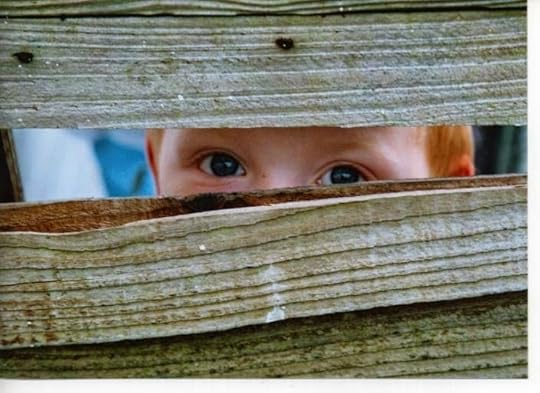
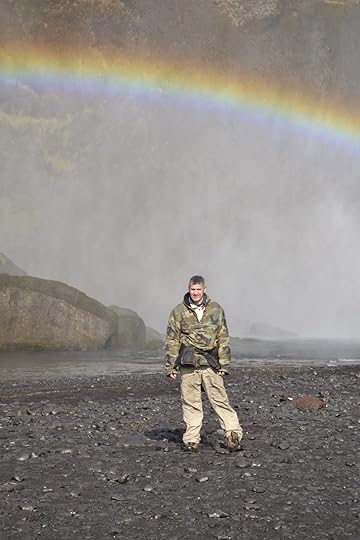

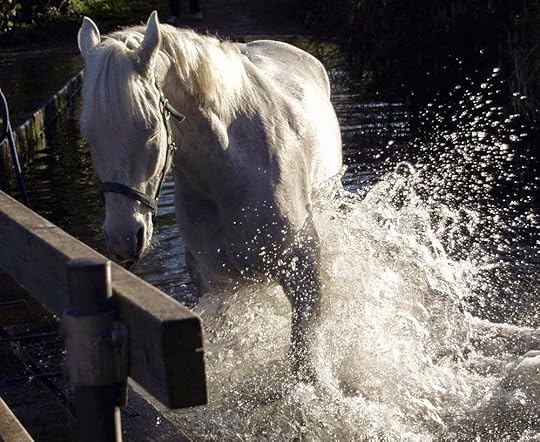
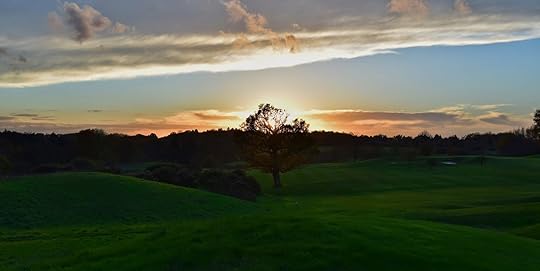
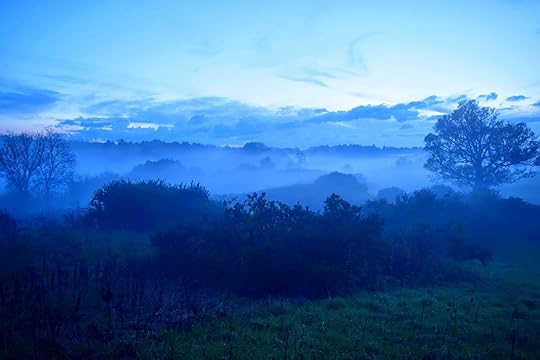




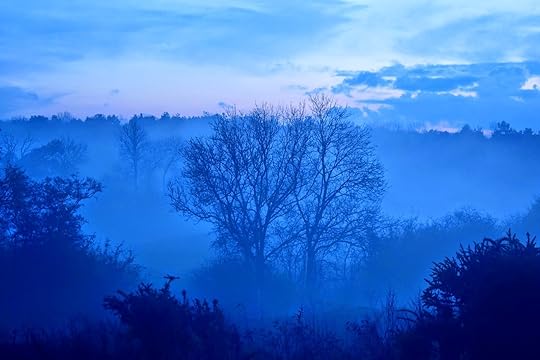


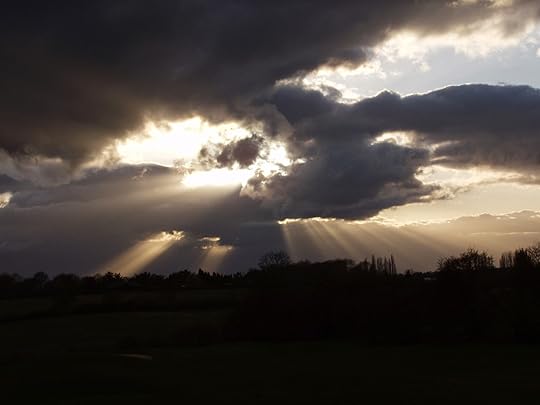
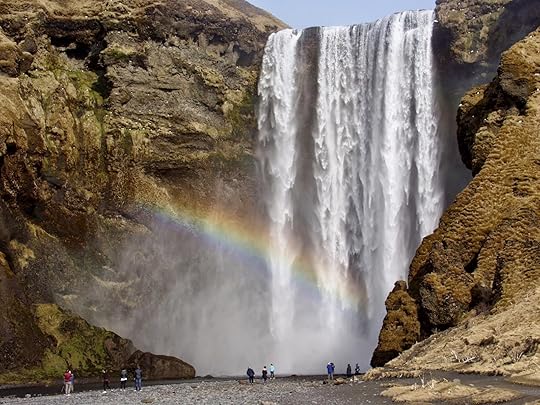
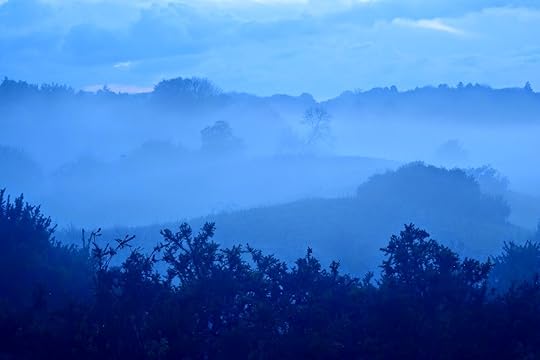





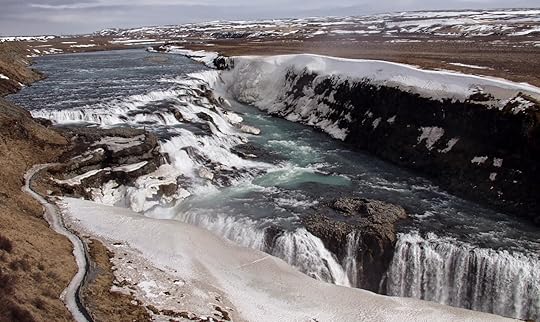
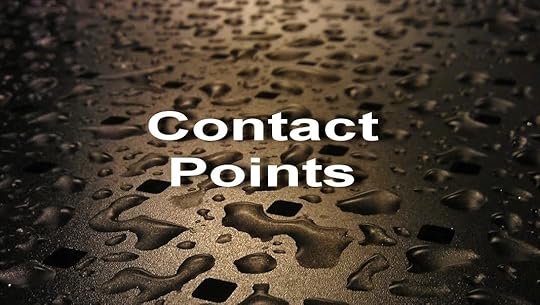
WEBSITE
BATTLE SCARRED JOURNEY
JOHNNY PLUMB
PHOTOGRAPHY

Clancy's comment: Mm ... Another amazingly talented man. Kim is a great author and photographer. I've read 'Battle Scarred Journey', gave it a sensational review, and I would highly recommend it to anyone. Kim is also an outstanding poet and dog trainer. Well done, Kim. Love ya work!
I'm ...
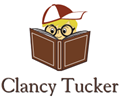
Think about this!
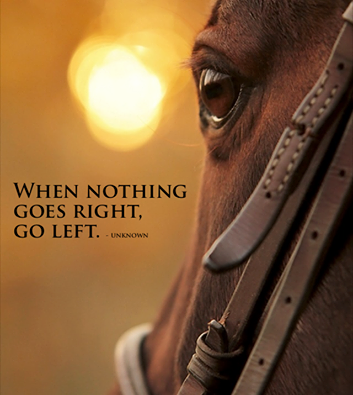
Published on March 13, 2015 05:29
March 12, 2015
13 March 2015 - GLASS BALL RINGS

GLASS BALL RINGS
G'day folks,
You can fit almost anything inside a tiny glass globe ring, right? Well, that depends on how creative you are. The transparent globe rings contain items inside that range from flowers to treasures, and even a few with Christmas spirit. Wait until you see the incredible gems floating around these magical glass orbs!

















Clancy's comment: Mm ... Clever, but not for me. What do you think?
I'm ...
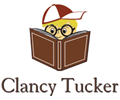
Think about this!

Published on March 12, 2015 04:22
March 11, 2015
12 March 2015 - SUAD KHATAB ALI - Guest Author

SUAD KHATAB ALI
- Guest Author -
G'day folks,
Today I introduce a very interesting writer from Washington DC. Suad has published extensively in Arabic, Khaliji & English. She writes fiction and poetry, but also writes for general interest magazines and works as a freelance editor. Suad especially enjoys editing/proofreading theses and dissertations. She was a professor for many years, and has lived throughout the Middle East Europe and the US.
Welcome, Suad ...
1. TELL US A LITTLE ABOUT YOURSELF AND YOUR WRITING JOURNEY.
I’m a woman of very mixed ancestry (The Arabian Gulf, the Maldives, Europe, Central Asia) from the United Arab Emirates, a small village just outside Dubai. I currently live in Washington, DC, but I’ve also lived in Paris, New York, Fez, the UK and Japan. I was a professor of Islamic Studies and English Literature, and Director of a Creative Writing program for many years. I was also a magazine editor, but I quit these professions to become a full-time writer. I write for literary magazines and freelance for many newspapers and magazines. My first English-language book, the novel Inshallah, is coming out from AUC Press in 2016. I have published collections of poetry and short fiction—in Arabic and Khaliji, my mother dialect—but they are hard to find and out-of-print.
2. WHEN AND HOW DID YOU BECOME A WRITER?
I’ve always loved to read and write. I read the classics, Eastern & Western, from the time I was about 9 or 10, in the 70s. Oedipusand The Prince were two books I read when I was quite young. I’m sure I didn’t understand them thoroughly, but I did take away something. I also read poorly translated, and often expurgated, versions of Shakespeare. In secondary school, I showed some poetry to my good friend, Nora, who mailed them to a magazine in Egypt without my consent. I was upset, but they published one poem and paid me a small stipend. I’ve never felt so good about being published.
3. WHAT TYPE OF PREPARATION DO YOU DO FOR A MANUSCRIPT? DO YOU PLAN EVERYTHING FIRST OR JUST SHOOT FROM THE HIP?
Usually, for extended fiction, I begin with an idea, let it percolate for a while, take a few notes, and begin. I tend to know some of the things I’m going to say but allow others things to remain a mystery until the page tells me what I’ve written. Poems come out all at once, in a few minutes’ time. I may change a word or two later on, or, if I find the piece unsatisfactory, delete it entirely. I’ve rubbished at least 50 complete books, probably more. Screenplays, novels, mysteries, academic work, stories, poetry.
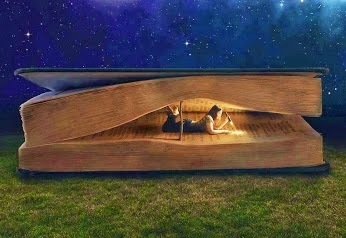
4. WHAT DO YOU ENJOY MOST ABOUT BEING A WRITER?
The solitude. The beauty and comfort of editing. Coming across a passage of mine—years after it was written, and not being nauseated.
5. WHAT IS THE HARDEST THING ABOUT BEING A WRITER?
All of it.
6. WHAT WERE YOU IN A PAST LIFE, BEFORE YOU BECAME A WRITER?
I was a waitress in Paris. A very bad waitress in Paris. I also scrubbed dishes in Fez. I was a mediocre dish-scrubber.
7. WHAT IS YOUR GREATEST WRITING ACHIEVEMENT?
I never feel as if I’ve achieved much. I enjoy the work and feel compelled to do it.
8. WHAT ARE YOU WORKING ON AT THE MOMENT?
Poetry, fiction, essays. Always six things going at once.
9. WHAT INSPIRES YOU?
Music, Dostoyevsky, Graham Greene, Japanese poetry, Turkish coffee, espresso, Pugnitello.
Diogenes the Cynic.
10. WHAT GENRE DO YOU WRITE?
Poetry, fiction, essays.
11. DO YOU HAVE ANY TIPS FOR NEW WRITERS?
Write and read and revise and edit and write and read and revise and edit and, sometimes, throw it all in the bin. My best short stories come from articles I’ve clipped out of foreign newspapers. Try that.
12. DO YOU SUFFER FROM WRITER’S BLOCK?
No.13. DO YOU HAVE A PREFERRED WRITING SCHEDULE?
I work best, at any task, in the morning. Before the world has intervened.
14. DO YOU HAVE A FAVOURITE WRITING PLACE?
My office. Nowhere else.
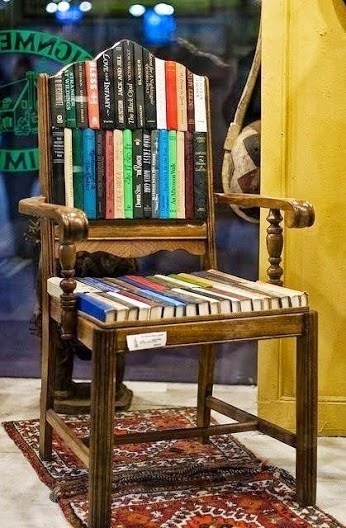
15. WHO IS YOUR FAVOURITE AUTHOR AND WHY?
I don’t have a favorite anything, but a long lists of favorites. Mahfouz, Martin Amis, Donna Tartt, Philips Levine & Larkin, and Roth. Charles Bukowski finds the beauty of ugliness. I like that. And he finds it in the small good thing. The kind bartender, the skilful assassin. Mrabet. Lady Murasaki. Elliot Perlman. Raymond Chandler. A.E. Robinson. Plato, Nietzsche, Freud.
16. WHAT’S THE GREATEST COMPLIMENT YOU EVER RECEIVED FROM A READER?
I wrote a piece from the perspective of a young British artist. It was published in The Richmond Review, now defunct. Some Commenters, at the journal’s website, seemed to think that ‘only a British lad’ could have written it. Indeed.
17. WHAT WAS THE WORST COMMENT FROM A READER?
Editors, agents and other ‘experts’ are often so bad at reading. It’s sad and appalling. If you don’t like what I write, I can hardly blame you for that. This is the worst drivel in history! Okay, maybe it is. But I regularly get comments that are simply wrong. I didn’t like the baker character. Well, there wasn’t a baker. When you switch to third-person... Didn’t happen. Poems can’t have dialogue. They can. They do. There are no rules, you bloody fool. Cultural gatekeepers are strangely conservative and often reactionary. I don’t mean in Islamic states, where it would be expected, but throughout the West. There are many exceptions, of course, but art should be about—and we pretend, or give lip service to the sentiment that, it is about—exploring what is new, creativity, the spirit of adventure and discovery, the loss of boundaries. However, editors all too often simply want what they’re familiar with, despite what it says on the Mission Statement or Submission Guidelines. Culture shouldn’t be managed from a position of fear and stodgy conservatism, but it often is. Not that art must always be shocking or ground-breaking, but we should never exclude the shocking or the ground-breaking.
What is more, we shouldn’t expect the New to always announce itself so blatantly. I have had an easy time, very easy, publishing fiction that is overtly experimental, but I have had an exceedingly difficult time publishing work that, although much better than my overtly experimental pieces, is marked by innovation that’s subtle and covert. The editors and referees simply miss the subtlety. They only see what bonks them over their thick heads. Again, please, there are many exceptions.
18. WRITERS ARE SOMETIMES INFLUENCED BY THINGS THAT HAPPEN IN THEIR OWN LIVES. ARE YOU?
Every moment is an influence, or multiple influences. I have a photographic memory and enjoy/suffer from synaesthesia, which is more of a curse than a blessing, so I live within the funhouse mirror of a Borges fiction. I’m currently writing a novel about childhood. There are too many details that announce themselves too insistently and simultaneously on my consciousness for me to include all of them. I am the lone filing clerk in a vast and constantly-expanding archive.
19. OTHER THAN WRITING, WHAT ELSE DO YOU LOVE?
People. A few of them. Film, music, food & drink. I’m not overly fond of nature. Bukowski has a short, stark poem about a young boy who looks at the splendor of nature and is unimpressed. Why does every poet (aside from Bukowski) feel and express in verse the wonder of nature and, after doing so, deem himself an original, important and valuable writer? Surely, we should do more than mimic one another’s stale and predictable sensibilities?
20. DID YOU HAVE YOUR BOOK / BOOKS PROFESSIONALLY EDITED BEFORE PUBLICATION?
NO.
21. IF YOU WERE STUCK ON A DESERT ISLAND WITH ONE PERSON, WHO WOULD IT BE? WHY?
Dostoyevsky. After he was reanimated, of course. Not his corpse. Why? He had, it seems, a wonderful mind, a beautiful soul, a real imagination, and quite a personality. He would keep me amused, entertained and diverted. There are no gambling dens on a desert island, so we’d be safe there. You wouldn’t want to be stuck with Kafka, Joyce, any of the Wolves (Wolfs? Wolffs?), Hemingway, Proust, Bierce, Melville. So many suicides, drunks, egoists and generally unpleasant sorts, among writers. Balzac would be great, too. Bukowski would be alright, for a little while.

22. WHAT WOULD YOU SAY IF YOU HAD THE CHANCE TO SPEAK TO WORLD LEADERS?
I couldn’t be bothered. They already know whatever I might be able to tell them. They lack only the courage and the sense to do it.
23. WHAT ARE YOUR PLANS FOR THE FUTURE?
More of the same. In the very immediate future, I’m going to walk in the snow (it’s white outside my window now; the mailman is trudging slowly up the walk), play a Gagoosh LP, and make a new batch of cold-pressed espresso. I add small measures of chili powder, cardamom and salt to the process.
24. DO YOU SEE YOURSELF IN ANY OF YOUR CHARACTERS?
Probably all of them, especially in the villains who, while writing, I pretend are based on someone else.
25. DID YOU EVER THINK OF QUITTING?
Very often. Sometimes I write things that are, to my way of thinking, quite good, but then I destroy them. I started this at 19, at university. It seemed to embody a romantic idea, or illusion, of Purity. I still do it sometimes, for slightly different reasons. I’m a budding photographer. Were I younger, I might chuck it all in for snapping pictures.
26. WHAT WAS YOUR FAVOURITE MANUSCRIPT TO WRITE? WHY?
When I was 18, a quatrain leaped into my head, fully developed, like Athena born full-grown and climbing out of Zeus’s skull. It was better than anything I wrote for years, though I didn’t actually seem to ‘think of it’ or have to ‘write it.’ It seemed inspired, though that sounds pretentious and I don’t necessarily think there is value to what I write. I get beauty from others’ writing, but I don’t ever think of others getting anything from my work. I suppose they do, on occasion, and I’m not trying to be falsely humble. I simply don’t consider the reader. I make a living from scribbling words, and I enjoy it, and I can’t stop, and that’s that.
Here’s the scrap of verse: ‘and sometimes I remember well / how at 12 I pres’t for time / and heartbreak’s quick kiss / pres’t her first-time lips to mine.’ I still like the final couplet. I ‘wrote’ this in English, my first artistic use of the language. Why did I employ rhyme? Why was it so old-fashioned (note the archaic spelling)? Never wrote anything like this again, in any language. A mystery.
27. WHAT SHOULD READERS WALK AWAY FROM YOUR BOOKS KNOWING? HOW SHOULD THEY FEEL?
That’s up to them. Generally, I want to present a place and a character or two and a situation that may be unfamiliar. I want the reader to see these things, and begin to understand them, but I don’t have a specific agenda regarding what or how they see.
28. WHAT’S YOUR ULTIMATE DREAM?
I’d like my books to sell enough copies so that publishers want to keep publishing them.
29. WRITING IS ONE THING. WHAT ABOUT MARKETING YOU, YOUR BOOKS AND YOUR BRAND? ANY THOUGHTS?
I don’t tend to market my work or self at all. I find it embarrassing and would rather write something new than flog the last thing. I’m sure I would be more successful if I did more, but I’m fine with the way things are.
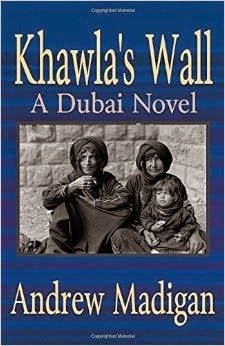
30. ARE YOUR BOOKS SELF-PUBLISHED?
No.
31. WHAT PISSES YOU OFF MOST?
I’ve alluded to a few of these things already. What else? The enslavement of humanity to machines. The increasing self-involvement and uniformity of mankind. Lack of moral courage. The blindness. We ignore all the real problems of the world. We could be much happier, and make others more happy, but we pretend to want, instead, more TV channels and the newest machines and more shoes and cheese-stuffed pizza crust.
32. WHAT IS THE TITLE OF THE LAST BOOK YOU READ? GOOD ONE?
A collection of Japanese poems. & Sons was excellent. Metro(by Shafee). The Goldfinch. So many good ones. I’m going to go with Khawla's Wall by Andrew Madigan. It’s probably not the very best on this list, but close. It’s currently being translated into French and Arabic. I know the author, a bit, professionally. Perhaps the best mind I have ever encountered, a great dry wit, and so sympatico in many respects, though we’ve only communicated by email. The book is set in Dubai (much better than The Dog, another recent Dubai fiction). It's a literary novel filled with high seriousness, but it's nearly as approachable as a beach read. There is romance, literary anthropology, a brief history of the UAE, a chronicle of Dubai, light-handed analyses of gender, race, class struggle, the plight of the nation’s foreign labor which, like the slaves of Egypt, constructed the city upon its own dead. (As you can see I’m no apologist for my country, though I’m not without sympathetic feelings as well.) An odd and slightly curious novel, but such a good one. I am impressed and humbled that an American wrote what I consider to be the novel of my home city. Khawla’s Wall resonates with Greene, Franzen, Kafka, Memoirs of a Geisha, Coetzee, the Emirati fiction-writer al-Murr. At its heart, the book is about the clash of values and beliefs. The author is an American of Arab, Jewish and European descent and is especially adept at getting into the minds of diverse, unusual characters. I've written about him before and have reviewed his book. I will devote a good part of 2015 to reviewing, discussing and promoting books that should find a wider readership. Hopefully, Madigan’s will do well.
Although it's easier than ever for new authors to get a book published, it is, ironically and sadly, more difficult than ever for unknown writers to get recognized, distributed and sold widely. The big publishers still have a stranglehold on our reading tastes. Let’s change this. Everyone buy a few independent books this year. Stephen King doesn't need any more of our money, or any more devoted followers. (And of course his sentences are as poor as his stories are compelling.)
As I say, I’m dedicated to promoting indie writers and achieving parity with the major publishers.]
http://www.amazon.com/Khawlas-Wall-Andrew-Madigan/dp/1938101898/ref=sr_1_1?ie=UTF8&qid=1420305650&sr=8-1&keywords=andrew+madigan
33. WHAT WOULD BE THE VERY LAST SENTENCE YOU’D WRITE?
Help!
34. WHAT WOULD MAKE YOU HAPPIER THAN YOU ARE NOW? CARE TO SHARE?
I do tend to go on. Some of my replies are, I’m afraid, off-puttingly lengthy (sorry). Even for the woman writing them. Which is to say, I’d like to wrap this up soon and get to that cold-pressed coffee. That would make me very happy.
35. ANYTHING YOU’D LIKE TO ADD?

Here are links to some of my work. One stand-alone story and a collection that features one of my works.
http://www.amazon.com/Submission-FPQ-Suad-Ali-ebook/dp/B00JJP401M/ref=sr_1_fkmr1_2?ie=UTF8&qid=1420567892&sr=8-2-fkmr1&keywords=suad+khatab+ali
http://www.amazon.com/Rainbow-Feast-Mohammad-Quayum/dp/9814302716/ref=sr_1_1?s=books&ie=UTF8&qid=1420568016&sr=1-1&keywords=a+rainbow+feast
That was one thorough and astute questionnaire. Thank you, Clancy. You must be indefatigable. Thanks also for your interest, thoughtfulness and hard work.
Salam, S.

Clancy's comment: Thank you, Suad, for sparing the time to be interviewed. Loved your answers to my questions.
I'm ...


Published on March 11, 2015 04:11
March 10, 2015
11 March 2015 - CARL SAGAN
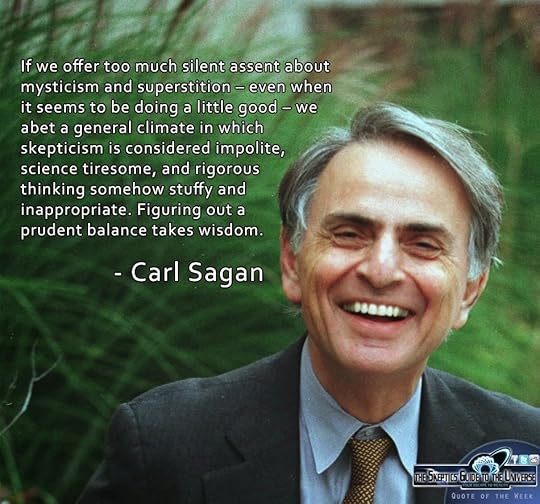
CARL SAGAN
G'day folks,
Carl Sagan was probably the most well-known scientist of the 1970s and 1980s. He studied extraterrestrial intelligence, advocated for nuclear disarmament, and co-wrote and hosted 'Cosmos: A Personal Voyage.'
“Imagination will often carry us to worlds that never were. But without it, we go nowhere.”
—Carl Sagan
Astronomer Carl Sagan was born on November 9, 1934, in Brooklyn, New York. He graduated from the University of Chicago, where he studied planets and explored theories of extra-terrestrial intelligence. He was named director of Cornell’s Laboratory for Planetary Studies in 1968 and worked with NASA on several projects. An anti-nuclear activist, Sagan introduced the idea of “nuclear winter” in 1983. He wrote one novel, several books and academic papers and the TV series Cosmos, which was reborn on TV in 2014, before his 1996 death.
Early Years Carl Sagan was born on November 9, 1934, in Brooklyn, New York, the first of two children. Sagan’s interest in astronomy began early on, and when he was five his mother sent him to the library to find books on the stars. Soon after, his parents took him to the New York World’s Fair, where visions of the future piqued his interest further. He also quickly became a fan of the prevalent 1940s science-fiction stories in pulp magazines and was drawn in by reports of flying saucers that suggested extraterrestrial life.
Sagan graduated high school in 1951 at age 16 and headed to the University of Chicago, where experiments he conducted drove his fascination with the possibility of alien life. In 1955 Sagan graduated with a BA in physics, and he took his master’s a year later. Four years later, Sagan moved to California after obtaining a PhD in astronomy and astrophysics, landing at the University of California, Berkeley, as a fellow in astronomy. There, he helped a team develop an infrared radiometer for NASA’s Mariner 2 robotic probe.
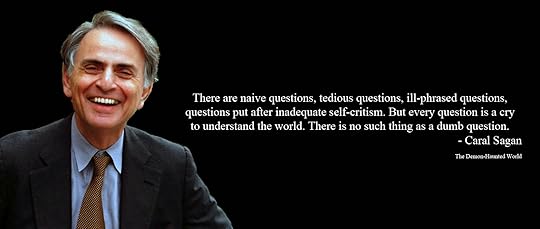
Further Work With NASA and Fringe Science
The 1960s found Sagan at Harvard University and the Smithsonian Astrophysical Observatory, where his work centered on the physical conditions of the planets, particularly those of Venus and Jupiter. In 1968 Sagan became the director of Cornell University’s Laboratory for Planetary Studies, and three years later he became a full professor. Working again with NASA, Sagan helped choose where the Viking probes would touch down on Mars and helped craft the messages from Earth that were sent out with the Pioneer and Voyager probes sent beyond our solar system.
While still in his 30s, Sagan began speaking out on a range of fringe issues, issues that would gain him much attention, such as the feasibility of interstellar flight, the idea that aliens visited the Earth thousands of years ago and that creatures resembling “gas bags” live high in Venus’ atmosphere. He also testified before Congress during this period about UFOs, which had captured the minds of the newspaper-reading populous, and proposed terraforming Venus into a habitable world.
The Rare Celebrity Scientist
In 1968, now a well-known quantity in the scientific realm, Sagan briefly served as a consultant on the Stanley Kubrick film 2001: A Space Odyssey, although a clash of personalities ensured the gig was short-lived. In the 1970s and 1980s, Sagan was the most well-known scientist in the United States, helped in no small part by the books he wrote. Works such as The Cosmic Connection: An Extraterrestrial Perspective (1973), Other Worlds (1975), The Dragons of Eden: Speculations on the Evolution of Human Intelligence (1977; Pulitzer Prize winner) and his 1985 novel, Contact (made into a film starring Jodie Fosterin 1997), all grabbed the attention of the scientific community and general audiences.

Later Career
In 1980, Sagan co-founded the Planetary Society, an international nonprofit organization focusing on space exploration, and also launched the hugely influential TV series Cosmos: A Personal Voyage, which he wrote and hosted. He also wrote a companion book of the same name to accompany the series. Another of his famous works, Pale Blue Dot: A Vision of the Human Future in Space (1994), was the sequel to Cosmos and was inspired by the famous Pale Blue Dot photograph, which shows Earth as a mere speck in space. Sagan uses the Voyager 1 probe photo as a leaping-off point to discus humanity's place in the vast universe and his vision of the future.
Sagan used his status, both as a celebrity and scientist, to further his political goals, and he undertook a campaign for nuclear disarmament and was a vocal opponent of President Ronald Reagan’s Strategic Defence Initiative. In 1983 he co-wrote a paper that introduced the concept of “nuclear winter” followed the next year by his co-authored book The Cold and the Dark: The World After Nuclear War.
Over the course of Sagan’s career, he was honoured several times, notably receiving NASA’s Distinguished Public Service Medal (1977, 1981) and the National Academy of Sciences’ Public Welfare Medal (1994), among dozens of others.
He died of pneumonia, a complication of the bone-marrow disease myelodysplasia, on December 20, 1996, at age 62. Eighteen years later, Cosmos was brought back to TV, this time with Neil DeGrasse Tyson taking on hosting duties and getting a whole new generation of viewers excited about what lies beyond the boundaries of Earth's atmosphere.
 Clancy's comment: Mm ... Some people adored him. Me? I'd never heard of him until three years ago.I'm ...
Clancy's comment: Mm ... Some people adored him. Me? I'd never heard of him until three years ago.I'm ...

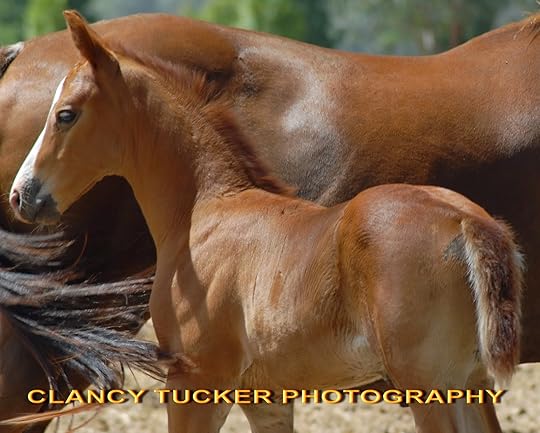
Published on March 10, 2015 04:19
March 9, 2015
10 March 2015 - AFRICAN FACTS

AFRICAN FACTS
G'day folks,
Welcome to some more facts about Africa.



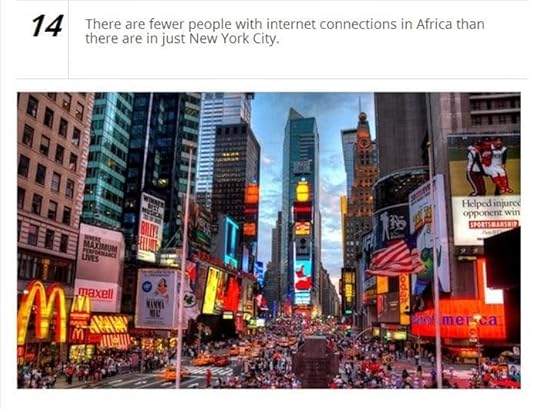
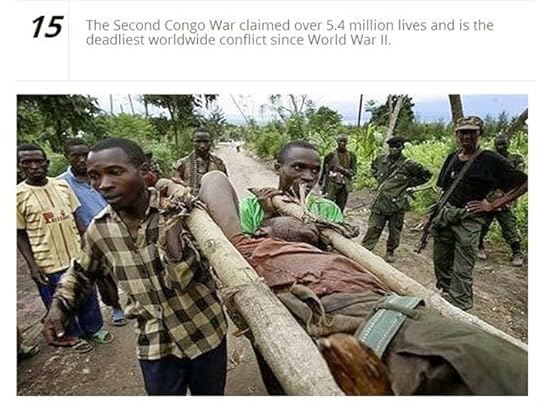
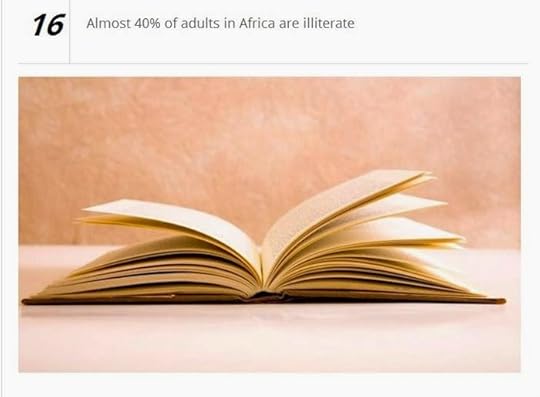
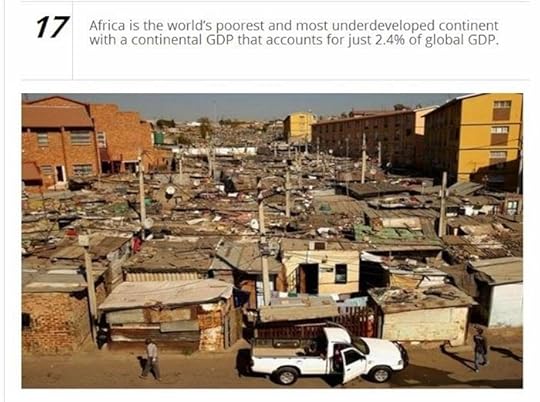



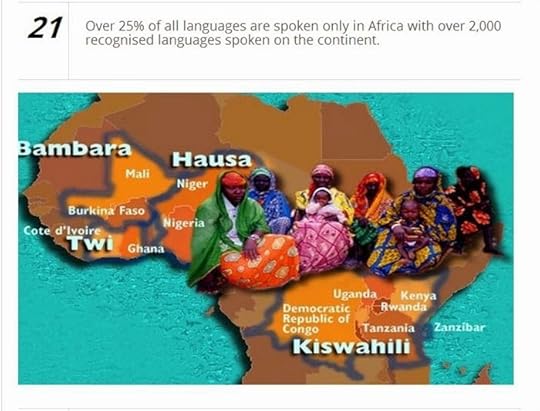



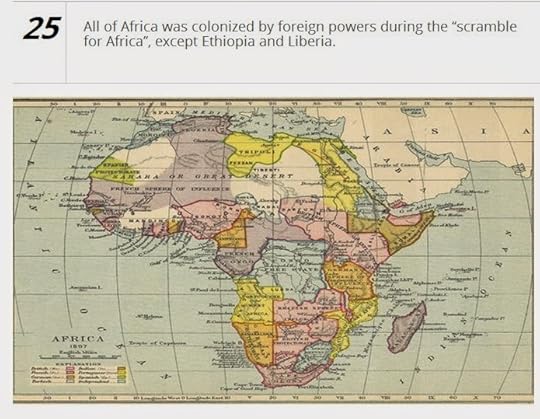
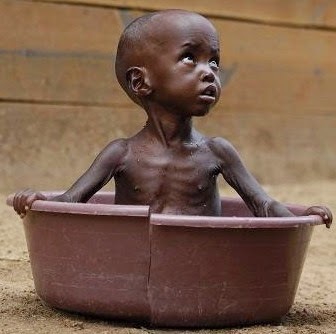
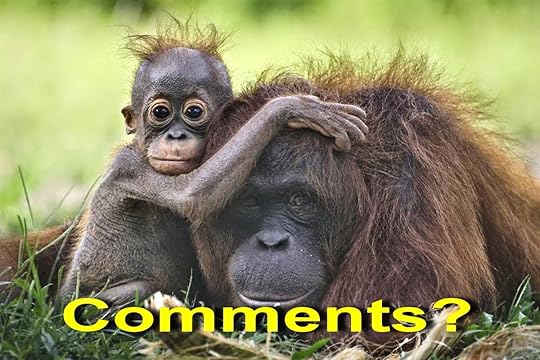
Clancy's comment: Amazing, eh? I would love to see the kids at least learn how to read and have a basic education.
I'm ...

Think about this!
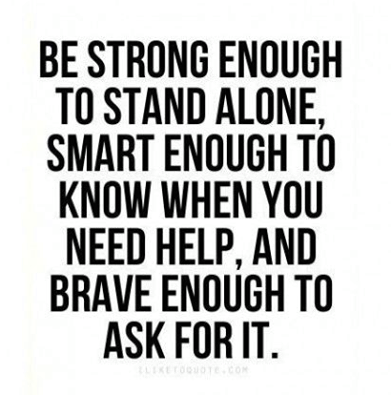
Published on March 09, 2015 05:13
March 8, 2015
9 March 2015 - WISDOM
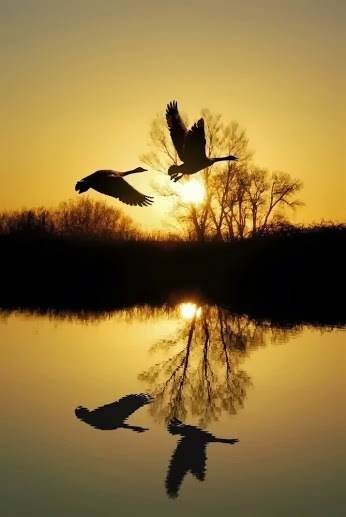
WISDOM
G'day folks,
Time for some kind reminders ... And a few chuckles.
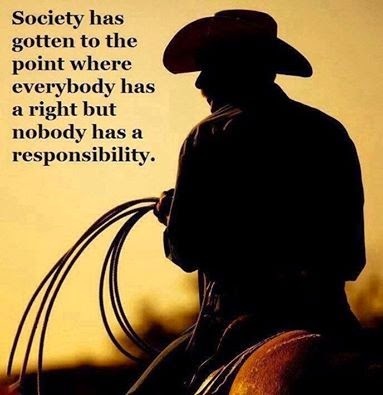
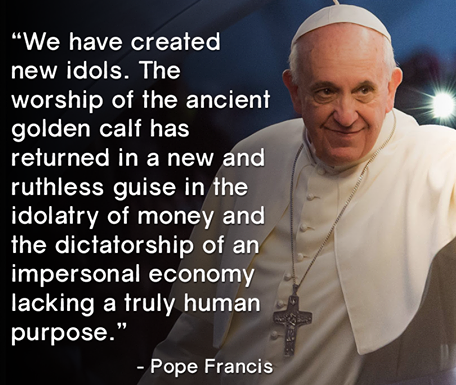




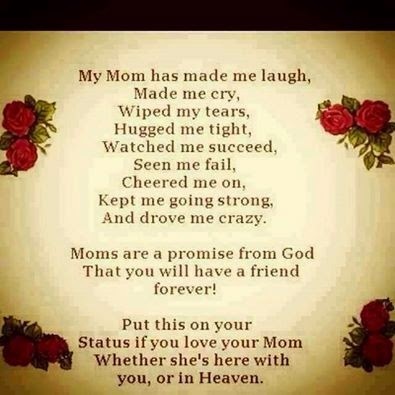










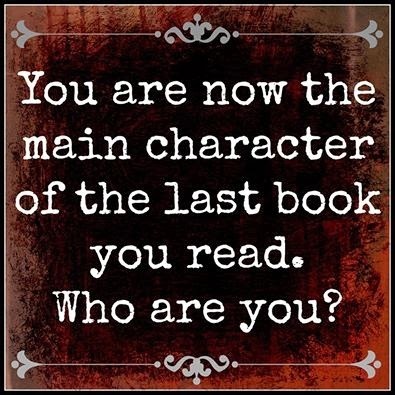
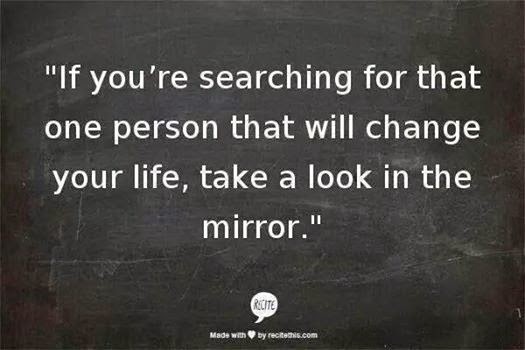
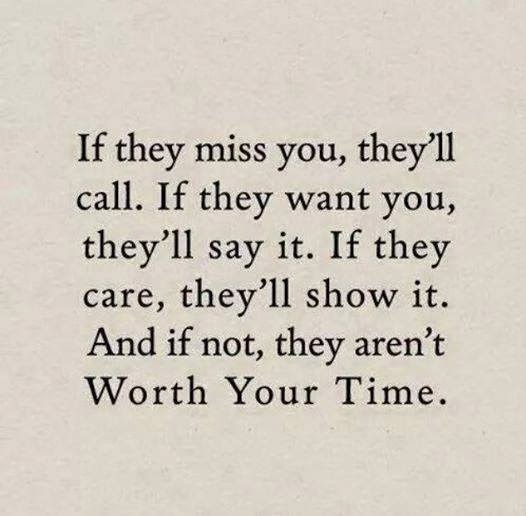

Clancy's comment: Love these, especially the subtle humour.
I'm ...


Published on March 08, 2015 04:17
March 7, 2015
8 March 2015 - ANGKOR WAT

ANGKOR WATG'day folks,
I have featured this amazing place before but I think it is worth re-posting. Located in a part of Cambodia that was once the seat of the famous Khmer Empire, Angkor (meaning 'capital city' in Khmer) was the heart of this civilization that thrived from the 9th to 15th centuries CE. There are over one thousand different temples in Angkor of different sizes and scales, all of which have been restored as a landmark of historic Khmer architecture. The entire site is preserved as a UNESCO World Heritage Site, but even if you can't make the journey to Cambodia, here is a tour of Angkor's highlights.






























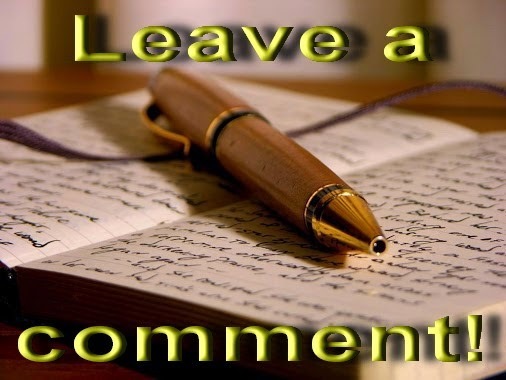
Clancy's comment: What an extraordinary place. Two things stagger me about this place: the quality of construction, considering its age and the lack of modern day equipment, and the fact that it has survived centuries.
Trust me, it is one of the most interesting places to visit as a photographer.
I'm ...


Published on March 07, 2015 04:26
March 6, 2015
7 March 2015 - BRAIN TEASERS

BRAIN TEASERS
G'day folks,
Time to test yourself with some brain teasers. They are a great way to sharpen your mental acuity! Many times, due to the way our brains function, we see what we want to see and hear what we want to hear, but these brainteasers will challenge you to think outside of the box and test how far your imagination can stretch.
1. Johnny's mother had three children. The first child was named April. The second child was named May. What was the third child's name?
2. A clerk at a butcher shop stands five feet ten inches tall and wears size 13 sneakers. What does he weigh?
3. Before Mount Everest was discovered, what was the highest mountain in the world?
4. How much dirt is there is a hole that measures two feet by three feet by four feet?
5. Mary was born on December 28th, yet her birthday always falls in the summer. How is this possible.

6. In British Columbia you cannot take a picture of a man with a wooden leg. Why not?
7. If you were running a race and passed the person in 2nd place, what place would you be in now?
8. Which is correct to say: "The yolk of the egg is white" or "The yolk of the egg are white"?
9. A farmer has five haystacks in one field and four in another. How many haystacks would he have if he combined them all in one field?
10. A murderer is condemned to death. He has to choose between three rooms. The first is full of raining fire. The second is full of assassins with loaded guns. The third is full of lions that haven't eaten in 3 years. Which room is safest for him?
11. What is black when you buy it, red when you used it, and grey when you throw it away?
12. Can you name three consecutive days without using the words Wednesday, Friday or Sunday?

ANSWERS
1. Johnny.
2. Meat.
3. Mount Everest. It just wasn't discovered yet.
4. There is no dirt in a hole.
5. Mary lives in the southern hemisphere.
6. You can't take a picture with a wooden leg. You need a camera to take a picture.
7. You would be in second place. You passed the person in second, not in first place.
8. Neither. Egg yolks are yellow.
9. One. If he would combine all the haystacks, they would become one big stack.
10. The third room. The lions that have not eaten for three years would be dead.
11. Charcoal used in barbequing.
12. Sure you can name three consecutive days: yesterday, today and tomorrow.

Clancy's comment: How did you go? Now, here is one from me. Who is the father of the sons of Zebedee?
I'm ...
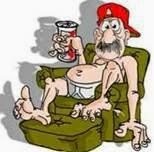

Published on March 06, 2015 04:32
March 5, 2015
6 March 2015 - LAZY FOLKS

LAZY FOLKS
G'day folks,Ever met someone who was downright lazy? Well, check out these examples.


















Clancy's comment: Mm ... Smart or lazy?
I'm ...
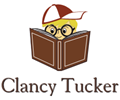
Think about this!

Published on March 05, 2015 02:33
March 4, 2015
5 March 2015 - JAMES M. COPELAND - Guest Author
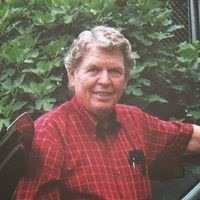
JAMES M. COPELAND
- Guest Author -
G'day folks,
Welcome to the return to this blog of a great author from Alabama, USA. The questions he answers today will be those that few people have asked.
Welcome, James ...
My dear friend Clancy:
Your offer to come into your blog is an enticing one to say the least. The people I have been reading about are famous people, ones that have accomplished great things. Would that I may do some of them at some point in my life.
What caused you to start writing, James?
I’m not sure, I suppose it was the love of saying something. I was a salesman, then a sales manager for a company that had excellent products. They taught me to love the art of explaining the value, not the price and with that knowledge I excelled. I had always wanted to be able to tell people about…whatever. I followed my Grandfather in the fields walking on the fresh ground he was plowing with my bare feet. That’s a wonderful feeling. I told him about it, and he grinned, said that he had done that behind his own Grandfather and knew exactly how I felt. Getting to the writing, I guess it started much later. I remember sitting in a cafeteria not far from my office in Kansas City, MO eating and I saw a man puttering on the sidewalk and the gutters for smokes. His clothes were ragged but clean, his hair was askew under an old cap and he was walking in the tops of a pair of bottomless shoes. He picked up a couple reached for a match in his pocket and lit the smoke. He grinned a broad smile when he inhaled as if that was one of the most enjoyable thing in the world, his world. I had to write about it. I wrote that poetry on the napkin at my table and that’s where I got my start. Since then, I have retired from actual work where I get paid and I write every day.
What are some of the things you have done during your lifetime?
As you can tell I enjoyed my Grandfather, oh yes, all the rest of my family as well. My father was killed in the Second World War in the year 1945. I have recently discovered several poems that he wrote during the years of 1938 and 1941. I am including them in the back of one of my novels titled, ‘Avenging Cycles.’
I’m sure that my father’s desire to write was inherited. I have rhymes of typed, categorized by date pieces of poetry stashed away. Mainly because I am the only one who really knows what they mean. The book I am referring to is pictured below as the front cover of the book. It’s not published yet, but will be shortly. The poems I found of my fathers will be featured at the back of the book with a short story about him. The Avenging Cycles story itself is a recounting of my own venture into the military field of Helicopter Flying. In 1963 I applied for helicopter training at the Camp Walters Helicopter Training facility located in Texas and was accepted. I went through the OCS training to achieve a Warrant Officer’s degree and then on to the helicopter part. The Avenging Cycles story substitute David Stabin O’ster for me and he progresses to a CIA appointment by the President of the USA. There is a sequel to this story, but I haven’t written it yet.

Was this the only flying you have done?
No Clancy, I came back to my job at Gadsden, AL and a client of mine said he didn’t want to buy anything that he would rather have a student pilot to train in fixed wing flying. I closed my bag, stood up like I was leaving and he asked, “Did I make you mad?” No, I said, I’m ready to go to the airport and become one of your students. We went, he trained, I flew to the Bahamas for my cross country flight, got my commercial license to fly and a customer for life.
The last ten years of my working life I operated a restaurant equipment & heating and air installation company in Branson, MO. I married my dear sweet wife two years before the end of the ten years and sold the business. We moved back to Alabama which was home for both of us.
My writing started in earnest in 2006. My first published book was titled, ‘Bottom Bones’ with Detective Frank Hawthorn.
This book has been my best seller. When I go to signings or shows this one is the first to sell out.
Other books I have written and published are ‘Madlyn Witherspoon’ a thirteen year old girl that runs away from home because of incest, and becomes a boy in looks for a few years at a hardware store.
James, many more books have you had published?
Clancy I’m glad you asked, there are two more. The next one started in December, of 2006. It was one that went in a drawer for two years before it saw the light of another day.
The title is, ‘Blindsided,’ this book had several rewrites, and then some more from the copy editor, the script editor and finally the publisher before it became a book. The publisher liked the Avenging Cycles manuscript but said that war stories were not selling as well as mysteries so we went with the ‘Blindsided’ novel.
What is the hardest thing about traditional publishing?
JMC: I don’t think there is anything hard about traditional publishing; it’s the authoring that’s hard. Of course the publisher has to make a decision to publish and once that decision is made their hung if it doesn’t work. I’d say that getting someone in publishing to look at your work is probably the hardest thing.
What genre is this book written in?
JMC: It’s a mystery / crime / suspense book, or better said, a-who-done-it-book. And, in this case Detective Frank Hawthorn always gets his man!
When did you originally write this book James?
JMC: This novel was one of the first I wrote in 2006.
Has it been rewritten, or possibly re-titled?
JMC: Has it been rewritten, ha, ha. (Laugh) I have re-written it so many times I wore the words out. This was the first book I took to a Literary Conference. It got eaten alive by a literary agent. Not only that, but the name was changed several times. I think that the end results are one of my best works. (I do have to give my publisher (KG Books) editor credit for making the last corrections.)

What’s the book about?
JMC: Detective FRANK HAWTHORNE receives a call from W.J. FISHER. He said that his son Milford Fisher had disappeared. He found his boat near the Memphis, Tennessee branch of the Fisher Granary Corp covered in blood. Later that day the boat disappears as well.
Hawthorn is told that young Fisher discovered someone was stealing millions from the company and now he is missing. Everyone believes him dead except Hawthorn who has a premonition that maybe…he’s still alive.
Detective Hawthorne works his magic to solve the crime. After several incidents and mishaps, he discovers the truth and finds the guilty individuals. There is an important twist in the story and Frank Hawthorne uncovers a plot that will keep you on your toes. Frank wears his heart on his sleeve and is BLINDSIDED when he discovered the truth about the woman he loves while he searches for the truth. You'll never guess what happens in this riveting tale.
How should new readers of your work feel?
JMC: Like they want to turn the pages of my next book! (This could be the beginning of a series?)
How did you meet the publisher?
JMC: Through one of the social media units I belong too. (I was turned down by the publisher at once, until I restated my position.)
Writing is one thing. What about marketing you, your book, and your brand, any thoughts?
JMC: Clancy, if I had been left to my own demise, I don’t know what I would have done. My publisher, (KG Books of Alabama) has given me every conceivable amount of help I could ever imagine. I feel that with the assistance I have been given that there is no way my novel would be anything but a success. The path we are on (together) only leads to success!
(One of my ways of marketing is going to be the sale of my home, and hitting the road in our new 38 ft Cayman Motor Home. I have the sign already made to post on my bus when we arrive at a signing spot. I have cards already printed with the face of the book prominent and mailing-cards that I can send to prospective accounts that possibly might sponsor a signing. We have the accessories for having a signing at a location, ie, table, table cloths, chairs, pens, isles for showing books and several other things too numerous to mention.)

What are your feelings, concerning the efforts of your publisher?
JMC: I am overwhelmed. If I had planned to select a publisher, I couldn’t have made a better choice.
Will this episode in your life change it?
JMC: Yes it will. It’s a new adventure, and I can hardly wait. For Shaw, who’s waiting, I have been working night and day trying to keep up with what my publisher (KG Books) wants me to do.
What are your plans in the very near future?
JMC: We are working every day in preparation for hitting the road. I can hardly wait for the signing process to begin. I have agreed to be at any signing or interviews my publisher (KG Books) feels necessary.
Do you have any tips for wanna-be writers?
JMC: I think the strongest thing I could possibly say is that if you want to write, you have to devote yourself to doing just that. This is not a process like fishing. You can bait a hook and drop it in the water, after a while you will catch a fish. Not so, in writing. You have to research every nook and cranny of the writing and publishing world to see the opportunities available to you and then spend countless hours practicing, arranging the words and studying the results. In reading some of my earlier works I look with awe at how I did what I did. I know now that my earlier work was only for me! Why, because I was the only one who knew what I was talking about. I wrote endless poetry and turned it over to others and they would read it and go, huh! What did he say?
In order to write, you have to write, and write, and write!
My greatest frustration as an author from the get go has been the fact that each turn down comes in a nice package. No instructions as to how you flubbed, no statements as to quitting your day job, nothing! The reason I have cordoned myself into this 15 by 15 room and slaved over this *%#))*& computer for 8 to 10 hours a day was not to receive a turn down stating how nice I was.
Once I learned, the hard way, I might add, how. . .to write I have done quite well. I now know how to put words on paper that actually mean something. . .to others! Now that I can do that my next problem is why are computers designed to dump things right in the middle of when you are the hottest? Did you know that the second time or maybe the third time you write something it will be entirely different? When I was a kid my mommy would have a birthday party for me with my cousins. One of the games we played was ‘telling a tale.’ Mom would start by whispering something in the ear of the first person in line and it was that persons job to relate that tale to the next one. IT WAS NEVER THE SAME!
I have learned a great deal including how to use the computer as a word processor. That’s cool. I still don’t know how to spell. Thank goodness for ‘spell check.’
Anything you’d like to add?
The last thing I am going to talk about is the great guy who is sponsoring this very blog. Thanks Clancy, I couldn’t have made it without you.
Best regards,James M. Copeland

AMAZON
WEBSITE

Clancy's comment: Thanks, James. Always a pleasure. Good luck with your books. Hope you sell heaps. Oh, get in that motorhome and have a great time. I'm sure your travels will inspire many new books.
I'm...


Published on March 04, 2015 02:39



